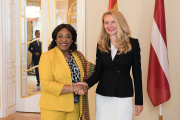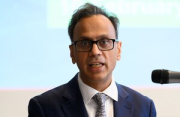
The publisher of the Sun newspaper has agreed to pay “substantial damages” and issued an apology to Prince Harry to resolve a protracted legal battle over allegations of unlawful intrusion
into his private life.
Prince Harry claimed that journalists and private investigators working for News Group Newspapers (NGN) used illegal methods to gather information about him, with senior executives allegedly covering up these activities. In a statement read in court, NGN apologized for the “serious intrusion” by the Sun from 1996 to 2011, acknowledging “incidents of unlawful activity” by private investigators working for the publication.
The apology also extended to the distress caused to Prince Harry due to extensive media coverage and intrusions into the private life of his late mother, Princess Diana. NGN’s settlement with Prince Harry and former Labour deputy leader Lord Tom Watson reportedly cost the company over £10 million in payouts and legal fees.
Allegations of unlawful practices
Prince Harry alleged that more than 200 articles published by NGN between 1996 and 2011 were based on information obtained through illegal means. Despite the settlement, Harry expressed a desire for the case to go to trial to hold the organization accountable for other alleged victims of unlawful newsgathering.
A source close to the Duke of Sussex described NGN’s apology as providing “all the insight you need.” David Sherborne, Harry’s barrister, hailed the settlement as a “monumental victory” and a significant step in holding NGN accountable for its illegal actions.
Lord Watson, who alleged his phone was targeted during his time investigating Rupert Murdoch-owned newspapers as an MP, also received an apology from NGN. The publisher admitted to placing Watson under surveillance but denied phone hacking after 2007 due to increased telecom security measures.
NGN’s response and fallout
NGN stated that the settlement “draws a line under the past” and ends this phase of litigation. While acknowledging incidents involving the Sun, NGN maintained that no journalists from the publication were involved in illegal activities. The company admitted its handling of arrests related to phone hacking in 2006 and subsequent actions were “regrettable.”
The settlement avoided a public trial that could have exposed damaging allegations, including claims of email deletion and obstruction of justice by senior NGN executives—allegations the publisher strongly denies.
Broader implications
The fallout from this case reignites questions about press practices in the UK. Former Sun editor Kelvin MacKenzie described NGN’s admissions as “astonishing” and noted the significant damage that could have been inflicted if executives like Rebekah Brooks had been called to testify.
Culture Secretary Lisa Nandy described the outcome as a “significant day and a big relief” for the claimants. However, she expressed skepticism about the efficacy of a second-stage Leveson inquiry into media practices, calling instead for collaboration between affected families and the press to ensure balanced reforms.
Historical context and personal impact
Prince Harry has long criticized the role of the tabloid press in his life, attributing the breakdown of his relationship with the Royal Family and the death of his mother, Princess Diana, to the relentless pursuit of paparazzi and intrusive coverage. Last year, Harry settled another case against Mirror Group Newspapers, citing unlawful information gathering from 1996 to 2010.
The resolution of this case marks another chapter in Prince Harry’s ongoing battle against tabloid intrusion, shedding light on the systemic practices that have plagued the UK media industry for decades. Photo by DoD News, Wikimedia commons.









































